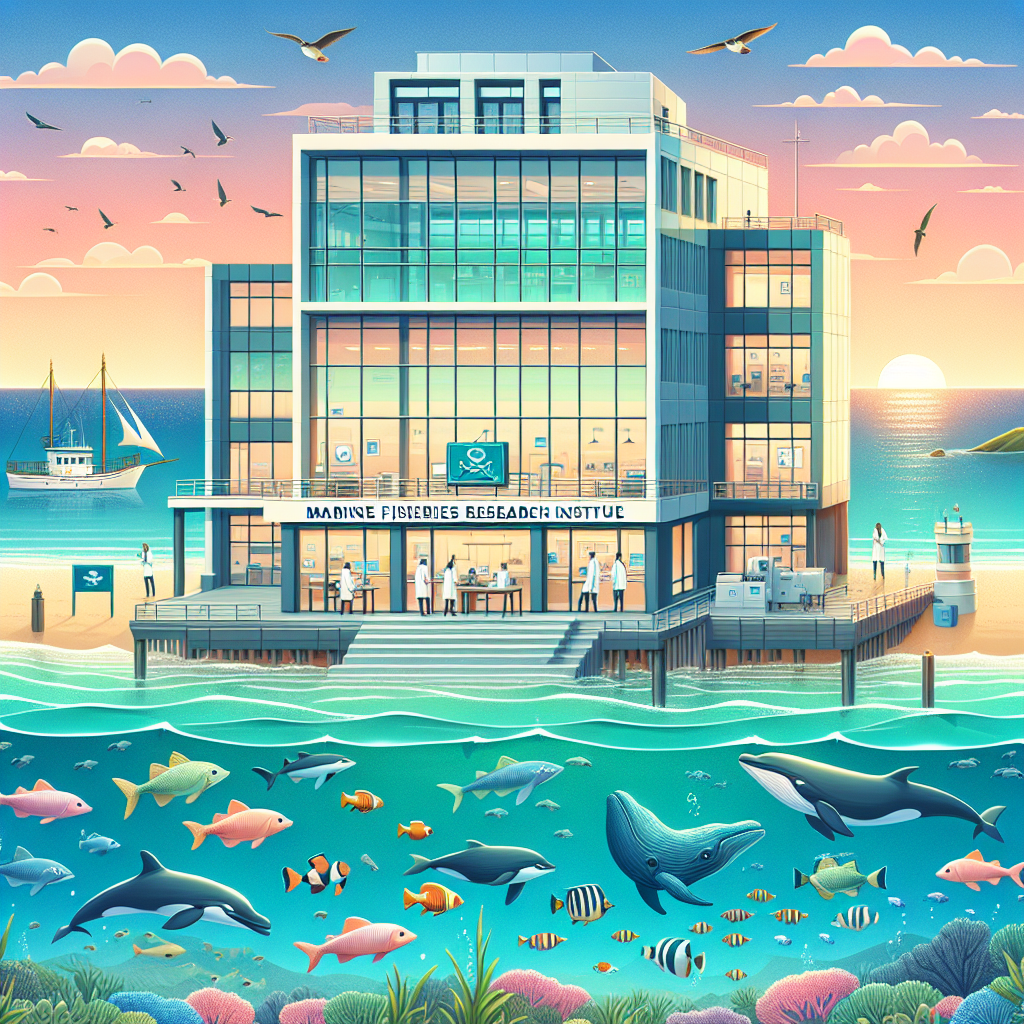Govt Expands Blue Revolution with Drone Technology and Sustainable Infrastructure
Dr. B K Behera, Chief Executive of NFDB, encouraged stakeholders to leverage new schemes that drive modernization.

- Country:
- India
The Department of Fisheries, Ministry of Fisheries, Animal Husbandry & Dairying (MoFAH&D), Government of India, hosted a workshop on November 8, 2024, at the ICAR-Central Marine Fisheries Research Institute (CMFRI) in Kochi, Kerala, focused on leveraging drone technology in fisheries and aquaculture. With a vision to modernize and uplift India's fisheries sector, the workshop demonstrated how drone technology and other innovations could address critical challenges in aquaculture, including disease monitoring, water quality assessment, and emergency response. Key Initiatives Announced
The event was graced by Shri George Kurian, Minister of State for Fisheries and Ministry of Minority Affairs, who underscored India’s progress in transforming the fisheries sector through initiatives like the Pradhan Mantri Matsya Sampada Yojana (PMMSY), which has received substantial funding of ₹38,572 crore.
Development of Climate-Resilient Coastal Villages
Shri Kurian announced the development of 100 climate-resilient coastal fishing villages under PMMSY. Each village will receive ₹2 crore to create fish drying yards, processing centers, and emergency rescue facilities designed to withstand climate-related challenges. The initiative also promotes sustainable practices, including seaweed farming and the use of green fuel, aimed at enhancing the resilience of India’s coastal communities.
Integration of Drone Technology
Drone technology was highlighted as a transformative tool for the sector, with applications ranging from water sampling, disease identification, fish feed management, to precision fishing. The workshop featured presentations on drones' role in monitoring aquaculture farms and inspecting fisheries infrastructure—particularly beneficial during natural disasters. In a landmark step, the government has announced a ₹364 crore investment to equip one lakh fishing vessels with transponders for real-time tracking, weather updates, and emergency communications, enhancing both safety and operational efficiency.
Expanded Drone Demonstrations and Research
The Department of Fisheries, in partnership with the National Fisheries Development Board (NFDB), organized drone demonstrations at key locations across India, such as the Central Inland Fisheries Research Institute in Kolkata and Gyan Bhawan in Patna. Dr. V V Suresh from the Mariculture division and EyeROV Technologies Pvt. Ltd. presented practical applications and challenges of drones in fisheries, emphasizing that underwater drones could monitor fish behavior in their natural habitats, helping to detect distress signals like erratic swimming patterns.
Technological Advancements and Capacity Building
Dr. B K Behera, Chief Executive of NFDB, encouraged stakeholders to leverage new schemes that drive modernization. In alignment with these initiatives, the Cadalmin BSF PRO, a sustainable fish feed, was distributed to local fish farmers to support eco-friendly practices. Additionally, a brochure titled “EG Sailas Centre of Excellence and Innovation” was released, detailing recent advancements in marine fish microbiome and nutrigenomics.
The launch of the Marine Biological Association of India (MBAI) National Symposium also took place at the event, aiming to facilitate knowledge-sharing among professionals in marine sciences. An interactive workshop was conducted at the Central Institute of Fisheries Nautical and Engineering Training (CIFNET) in Kochi, supported by D.G. Shipping from the Ministry of Shipping, Ports, and Waterways. This session addressed technical concerns related to registration, survey, and certification of fishing vessels, with contributions from experts at the Indian Registry of Shipping (IRS) and the Shipping Corporation of India (SCI).
A Vision for Sustainable FisheriesIn her address, Ms. Neetu Kumari Prasad, Joint Secretary (Marine), reaffirmed the Department's commitment to scaling up fisheries and aquaculture through sustainable practices and technological innovation. She noted that these advancements would increase fish production, streamline resource management, and improve operational efficiencies.
The government’s Blue Revolution initiative reflects a clear commitment to fostering a sustainable, technology-driven fisheries sector. With an ecosystem-wide approach that includes climate resilience, cutting-edge technology, and infrastructural upgrades, India is setting a new benchmark for sustainable growth in the global fisheries industry. The workshop provided fishermen, scientists, and industry representatives with a unique platform to learn about these advancements, signaling a new era for fisheries in India.










